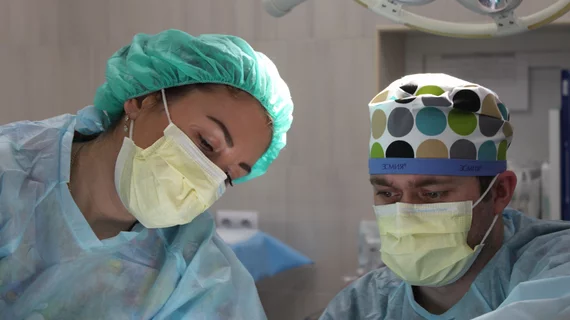CUTTING-EDGE findings shine new light on mitral valve surgery after failed TEER
Mitral valve (MV) surgery after failed transcatheter edge-to-edge repair (TEER) with the MitraClip device is rare, but associated with substantial 30-day and one-year mortality rates, according to new data published in JACC: Cardiovascular Interventions.
“The number of MitraClip implantations performed worldwide has exceeded 100,000 and continues to increase,” wrote first author Tsuyoshi Kaneko, MD, of Brigham and Women’s Hospital in Boston, and colleagues. “Despite the excellent safety profile and improving efficacy, certain TEER patients have required subsequent MV surgery for reasons such as recurrent mitral regurgitation (MR), residual MR, and mitral stenosis.”
Learning more about these instances of TEER failure, the group noted, is a vital part of providing optimal patient care. Kaneko et al. explored data from the CUTTING-EDGE registry, including information from 332 patients who underwent post-TEER MV surgery at one of 34 international facilities from July 2009 to July 2020. The mean patient age was 73.8 years old, and the median time from TEER to surgery was 3.5 months.
Overall, MV surgery after TEER was associated with a 30-day mortality rate of 16.6% and one-year mortality rate of 31.3%. The most common reason for MV surgery was the presence of recurrent MR (33.5% of patients), with residual MR coming in at No. 2.
While 92.5% of patients underwent MV replacement, 42.2% underwent concomitant tricuspid surgery.
The authors identified “significant associations” between 30-day mortality after MV surgery and frailty, cerebrovascular disease, pulmonary hypertension and right ventricular systolic pressure before TEER. One-year mortality after MV surgery was associated with age, frailty, diabetes and low left ventricular ejection fraction.
The generation of TEER device did not appear to be associated in any way with a person’s risk of 30-day or one-year mortality after MV surgery.
“The potential risks associated with MV surgery after TEER may have implications for the management of MR and TEER failure,” the authors wrote. “Subgroup analyses to further our understanding of these patients will be helpful.”
The full study is available here.

